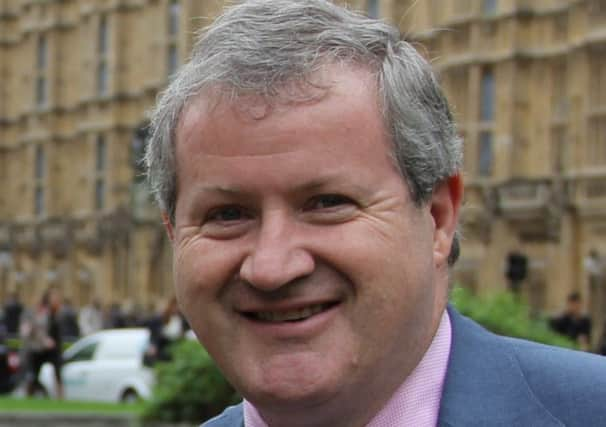PMQs: SNP demand end to '˜worst period for pay in 70 years'


SNP Westminster leader Ian Blackford challenged Theresa May over whether she was “looking out for the just about managing” during Prime Minister’s Questions in the Commons.
Mrs May hit back, stating that the “best route out of poverty is for people to be in work” and what was important was ensuring “we have an economy which is increasing the number of jobs”. Cutting taxes for the lower paid and introducing the national living wage was, she added, “giving people real help”.
Advertisement
Hide AdAdvertisement
Hide AdMr Blackford, the MP for Ross, Skye and Lochaber said: “The UK Government has not announced any measures to address rising inflation and slowing wage growth which the IFS (Institute for Fiscal Studies) has described as dreadful.
“As workers face more than a decade of lost wage growth and endure the worst period for pay in 70 years, does the Prime Minister think she’s looking out for the just about managing?”
Mrs May replied: “What is important is that we ensure that we have an economy which is increasing the number of jobs because the best route out of poverty is for people to be in work, that is what we are doing. We’ve seen nearly three million more jobs being created over recent years, that’s important for people.
“We also help people for example by cutting taxes, it’s exactly what we’ve done for people who are lower paid. Introducing that national living wage, these are measures that are giving people real help.”
Mr Blackford raised concerns about the hike in in-work poverty, arguing that workers have “paid the price” for austerity.
But Mrs May maintained the Government’s monetary policy had helped create jobs in the economy.
Mr Blackford said: “Of course it’s the forecast of a rise in in-work poverty that should concern us, in particular the likely increase of young people in poverty over the lifetime of this Parliament.
“Since the 2010 general election, the FTSE has risen by 39.6 per cent, monetary policy, not least quantitative easing has helped drive up financial assets while workers have paid the price for austerity.
Advertisement
Hide AdAdvertisement
Hide Ad“Workers will earn no more by 2020/21 than they did in 2008. Will the Prime Minister give workers a pay rise?
Mrs May replied: “I would have thought that particularly with his background he would have recognised the role that monetary policy including the quantitative easing has done in ensuring that we are able to see those jobs in the economy that are so important for people.”
